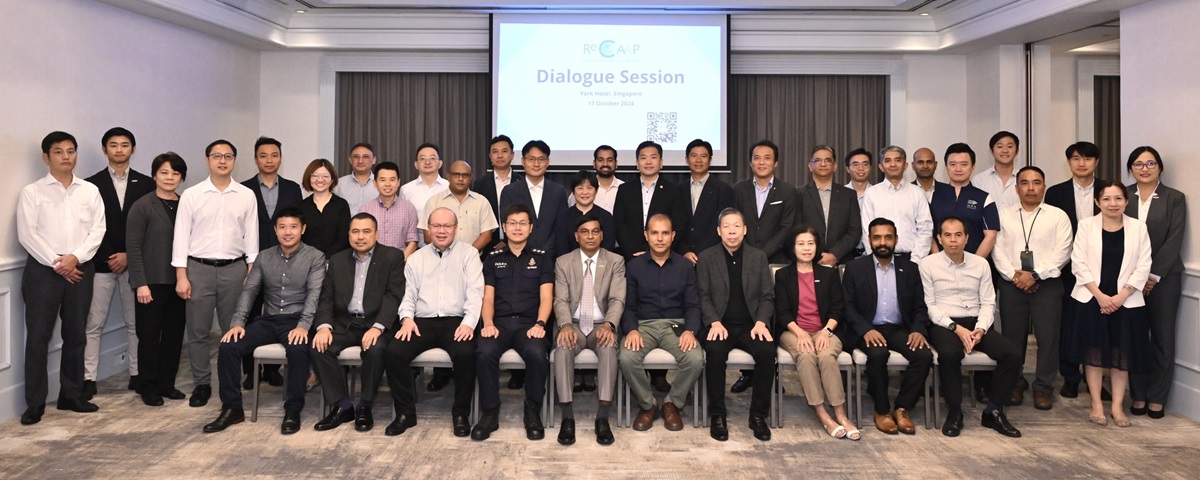The ReCAAP Information Sharing Centre (ISC) held a dialogue with representatives from the shipping industry to deliberate on risk mitigation measures which ships should adopt while transiting Areas of Concern in Asia. These areas are typically coastal waters, narrow straits with high vessel traffic and anchorages, where incidents of armed robbery against ships are more likely to occur.
The Singapore Police Coast Guard briefed participants on its joint efforts with law enforcement agencies of littoral States of the Straits of Malacca and Singapore (SOMS) to deter and combat sea robbery, as well as ship security measures vessels can adopt when transiting areas of concern. Hafnia Pool Pte Ltd shared a case study of a pilferage incident onboard a tanker, and action taken by the crew in preventing boarding by the perpetrators.
The ReCAAP ISC updated participants on the situation of piracy and armed robbery against ships in Asia (ARAS). The Centre reported a 19% decrease in the number of incidents in Asia in the first nine months of 2024, compared to the same period last year. The Straits of Malacca and Singapore witnessed a 38% decrease in robbery incidents, a significant improvement in comparison with incidents of 2023.
ReCAAP ISC Executive Director, Krishnaswamy Natarajan said, “It is encouraging to see a remarkable improvement in the sea robbery situation in the SOMS. This can be attributed to proactive monitoring and enforcement by the law enforcement agencies of the coastal States and enhanced vigilance by the shipping community. I urge the law enforcement agencies to keep up the good work and not let their guard down, to deter would be criminals and keep the sea lanes safe for international shipping and trade.”
During the dialogue session, participants deliberated on the efforts adopted by ship crew, the use of technology to deter unauthorised ship boarding, and the need to instil awareness among crew in evidence collection and preservation to assist in follow-on investigations. Also discussed the potential coordination role which ship agents can play in assisting local authorities with investigations, and facilitating the ships to proceed to the next port without delay and incurring financial loss. There was also deliberation on the IMO “insider threat” tool kit for the shipping industry to identify employees who might be involved in or facilitate security incidents due to ignorance, complacency, or malicious intent.
ReCAAP ISC Executive Director, Krishnaswamy Natarajan, said “While majority of seafarers are honest and committed to their jobs, we cannot rule out the connivance of insiders, who have access to restricted areas on the ship and confidential information where valuable cargo or assets are stored for occurrence of incidents.
Companies need to put in place robust security measures, establish an effective security culture within their organisations, and provide anonymous reporting channels to mitigate the threat posed by insiders.”







